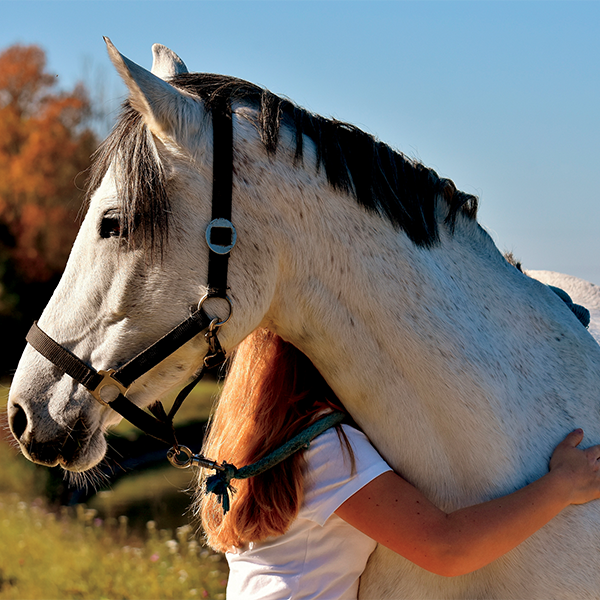As one show season closes and another approaches many equestrians become nervous thinking about competing and showing. For some riders there is a lot at stake when it comes to progressing and qualifying during a show season. As we all know, stress is easily projected onto our equine partners. How can we stay mentally prepared and healthy in order to be the leaders our horses need us to be?
Nicole Rocco-Lapinski, Licensed Certified Social Worker and Lead Therapist at Panther Creek Health, says, “Performance anxiety is incredibly common, especially in athletes.” It is comforting to know that this is normal. She suggests acknowledging, accepting, and verbalizing these anxious feelings to your trainer or another trusted person. The person you share these feelings with will most likely be able to relate and provide support. “Furthermore, it builds trust with your trainer and creates an environment for problem solving and developing strategies for reducing anxiety,” Nicole states.
Throughout the show season, there are several things you can do to help alleviate fears and keep nerves at bay. Mindful grooming is one technique. This involves focusing on one aspect of grooming while blocking out everything else. For example, how does it feel when you run your brush over the horse? According to Nicole, this is relaxing for both the human and horse and is called “co-regulation.” Practicing positive affirmations is another way to decrease stress. Choose a simple mantra over a complex one. Nicole suggests something like, “I am calm, I am strong, I am confident.” Positive affirmations combined with deep breathing can be amazingly soothing.
If you find yourself thinking about all the possible bad scenarios that could happen throughout the show season, Nicole suggests reframing your thoughts. Turn your negativity into positive and realistic thoughts. “Changing your mindset helps reduce feelings of anxiety and self-doubt,” Nicole asserts. When on the go this show season, there are relaxation apps, such as “Calm,” that can help reduce anxiety. If you feel like your anxiety is at too high of a level for these techniques to reach, Nicole advises you to seek a professional sports psychologist to help work through anxiety.
Should you train right up until the next show? Or should you take a few days off to relax and prepare beforehand? According to Nicole, this is up to the equestrian as an individual. Some riders may prefer to keep working and gaining confidence as close to the show as possible, while others may want to take a day or two off and focus on show preparations or just relax by changing up their routine.
Sleep and nutrition both play a vital role in keeping yourself mentally and physically prepared. “When we do not sleep and eat well, we are more likely to struggle with increased irritability, anxiety, and low mood,” Nicole states. If you already have a solid sleep schedule, “maintaining it during a stressful show season is key to [developing] good mental health,” according to Nicole. If you do not have a good sleep routine, try to identify the cause and correct it. “Eating habits can dramatically impact your energy levels and ability to deal with stress,” Nicole asserts, so take time to plan for nutritious meals. Consult with a doctor, nutritionist, or dietician before making any drastic changes to your diet, as athletes are prone to disordered eating, Nicole points out.
As mentioned, human stress and anxiety is easily projected onto our equine partners. “Horses are able to sense our heartbeats and knowing that we are calm will also encourage them to feel safe,” Nicole states. Once your horse is stressed, behavior changes and even eating habits can be affected, leading to colic, ulcers, and other unwanted health problems. Therefore, it is even more important this show season that we keep ourselves as mentally prepared as possible. Nicole recommends keeping your horse in a routine and gradually exposing it to unfamiliar things well in advance of the show to help prevent it from becoming stressed.
This show season give yourself grace when needed and understand that it’s perfectly normal to have performance anxiety. Use the tools and techniques that work for you to stay mentally prepared. Remember, both you and your horse need breaks from training. Make sure you get enough sleep and adequate nutrition. Keeping yourself mentally prepared and healthy will help create success for both you and your horse.









